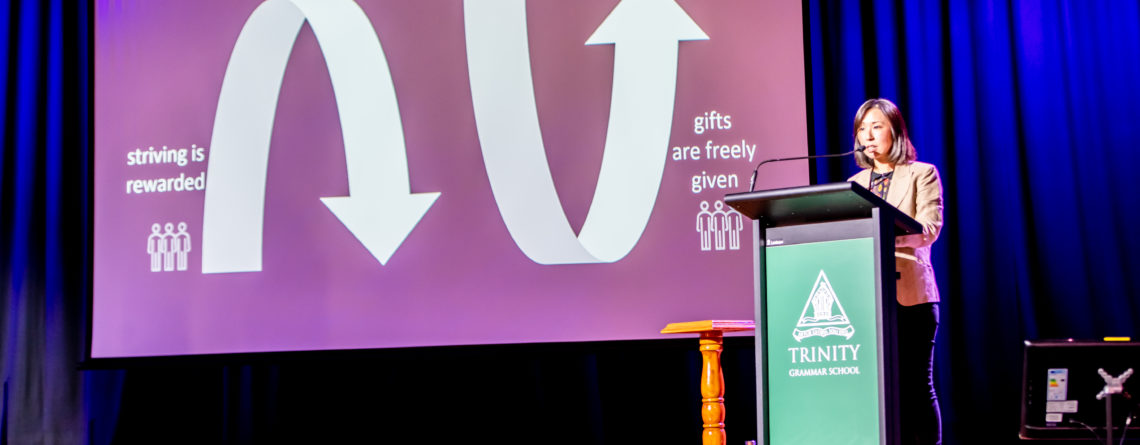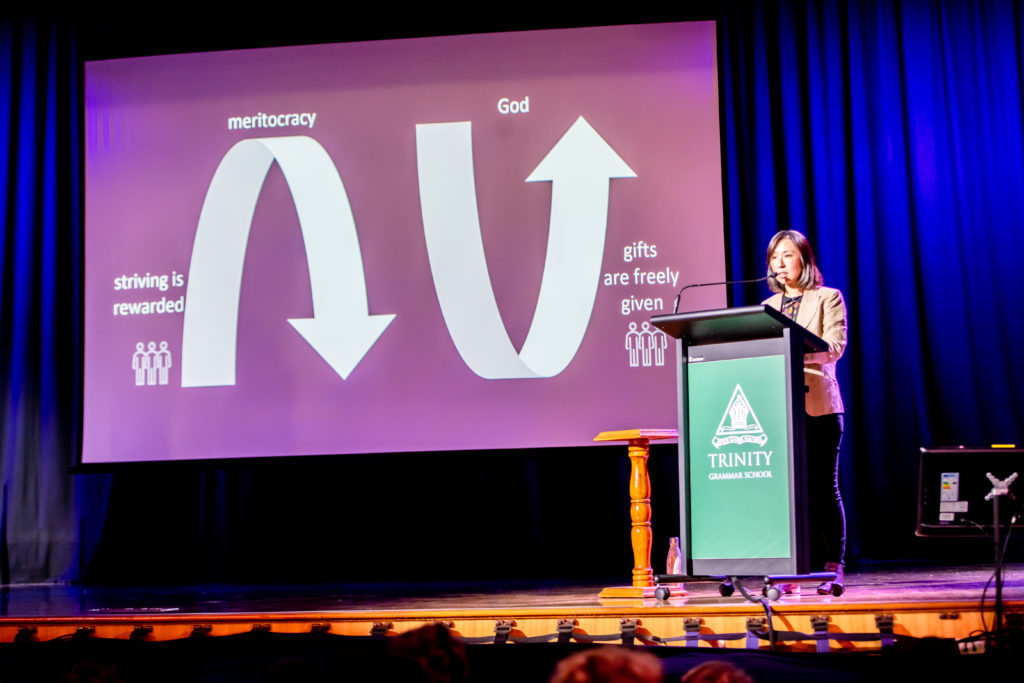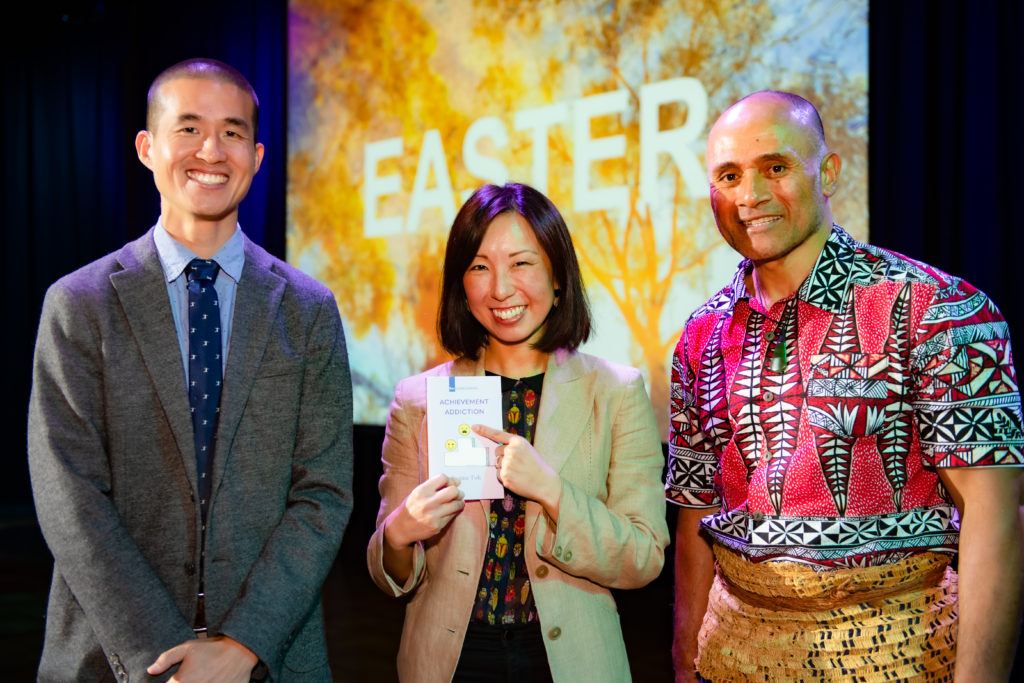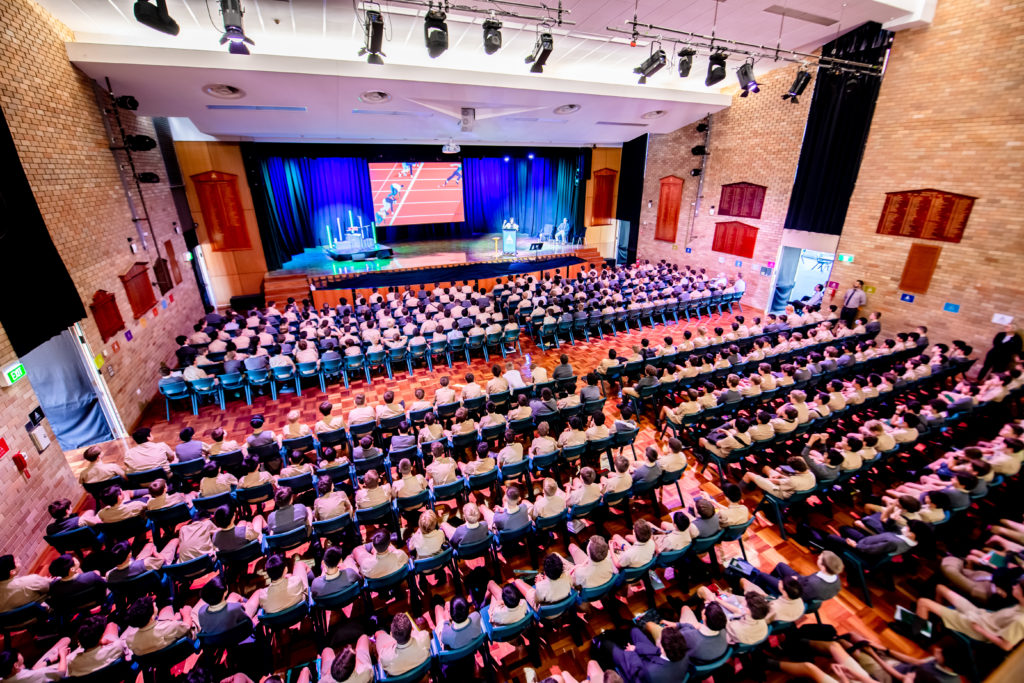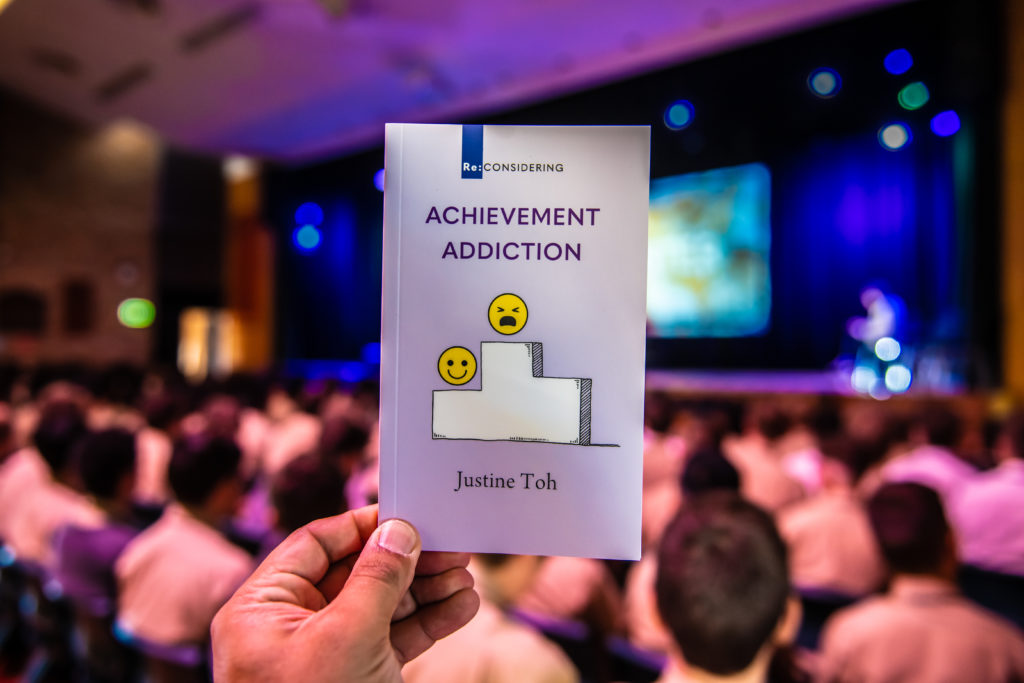Faith the only refuge for success “addicts”
Challenging message for high achievers
Australia is a country culturally addicted to achievement, and schools are the “crack house” of that addiction.
But faith provides a refuge for those scrambling on the treadmill of success.
That was the arresting Easter Mission message given to Trinity students by guest speaker Dr Justine Toh, Senior Research Fellow at the Centre for Public Christianity.
Asked by Trinity’s Assistant Chaplain Nathan Lee what Easter meant to her, she told senior and middle school assemblies: “Christian faith is the only aspect of life that doesn’t rely on you to work and earn your place in life.
“That is very reassuring, and our world could use a lot more reminding of that.”
She said Australians were constantly rated, measured and judged – in sport, at school, at university and in their working lives – but “God doesn’t care who worked the hardest or who was the most deserving”.
“Heaven is overturning every measure we use to rate people.
“With God you never have to wonder if your work was good enough.
“No-one is better or worse than anyone else.
“Your worth and true value can never be captured in a number.”
She said striving for success could make it more difficult to see “the God at the centre of all things”.
Dr Toh described herself as a “recovering achievement addict” who was raised by “hard-core Asian parents who really care about achievement”.
Her message may be a challenging one for many parents and schools who pride themselves on academic achievement, including Trinity. Yet the Head Master Tim Bowden applauded her message, with the reminder that Trinity’s mission is to deliver a thoroughly Christian education. “We would be remiss in our mission if we focused solely on achievement. Rather, our focus on growth and the Christian lens through which we encourage the boys to view life, are specifically about challenging society’s achievement expectations and the meritocracy that Dr Toh raised in her talk.”
Dr Toh also said a Mission Australia youth survey last year showed 46 per cent of respondents were extremely or very concerned about stress, 41 per cent about mental health and 33 per cent about school or study.
Previous studies showed that COVID may have made the problem worse but did not create it.
“School is the crack house of achievement addiction,” she said.
“Because it is a meritocracy, based on hard work and effort, it seems more equal and just than an aristocracy.
“You feel your existence is captured in one final number (an ATAR or IB score).
“You are told that in the scheme of things this number doesn’t matter but you are ranked against every other student.
“In this hall there are 100 years of duxes staring down at you.
“School is basically a performance treadmill and you are running on it. You feel it is measuring you as a person.”
“In a school like this it’s worth asking: what recognition comes to teams that don’t do well? Or does recognition only go to teams that win?”
Coincidentally, her address came shortly after Head Master Tim Bowden had raised similar issues at morning assembly when announcing that Trinity had lost the annual Black and Green Shield challenge to St Patrick’s College Strathfield.
Lessons could be learned by reflecting on that experience without recrimination, he said. “When you pull on those (school) colours you are part of something bigger than yourself. Your team is all of us who stand around this quad. Your team rises and falls together. There is more to it than just me – it’s an invaluable life lesson.”
Dr Toh asked students to discuss how it made them feel if they were “constantly marinating in a meritocratic environment”.
“You become competitive. You see yourself in economic terms, as human capital. You feel like a walking, talking ATAR. It’s exhausting working on your worth in the world.”
She used the words of Jesus to tell a story about a land owner hiring workers for his vineyard and paying them the same amount no matter how many hours they had toiled.
To those grumbling that they had been hired earlier in the day and worked longer, he said: “Don’t I have the right to do what I want with my own money? Or are you envious because I am generous?”
“So the last will be first, and the first last.” (Matthew 20:1 – 16).
“It’s a killer line,” Dr Toh writes in her book Achievement Addiction.
“In Jesus the storyteller, meritocracy meets its match. The meritocratic values we consider all-important – like hard work paying off, and earning our way in the world – just do not weigh with God, Jesus says.”

